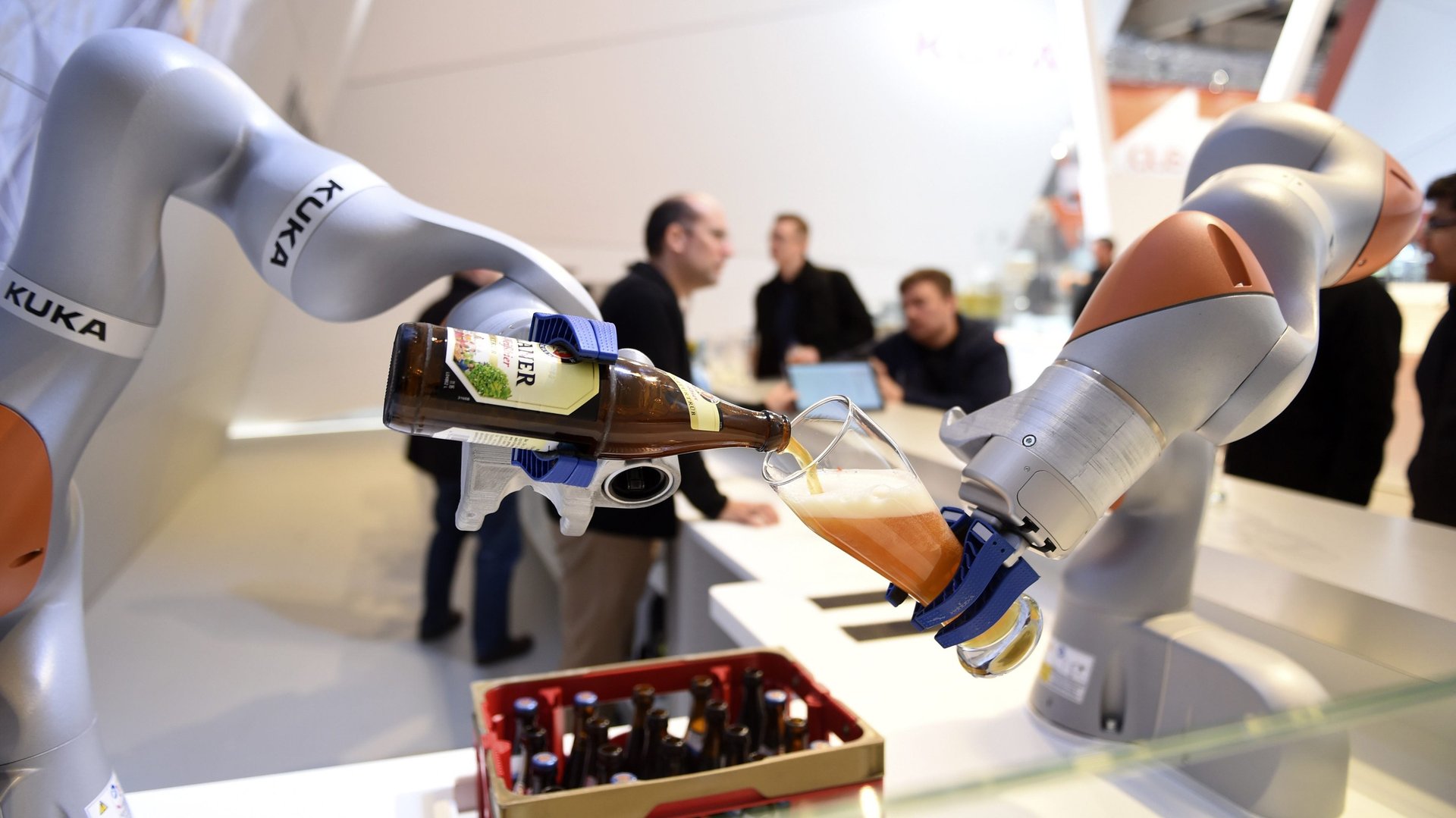China doesn’t have enough robots, so it’s coming for Germany’s
Germany’s top robotics company, Kuka, is being courted by a Chinese home-appliance maker. Chinese firm Midea has offered $5 billion for the company, which produces the high-tech machines found on Tesla’s factory floors and elsewhere.


Germany’s top robotics company, Kuka, is being courted by a Chinese home-appliance maker. Chinese firm Midea has offered $5 billion for the company, which produces the high-tech machines found on Tesla’s factory floors and elsewhere.
Midea’s bid is entangled in politics: Germany is reluctant to let go of a key asset that drives its manufacturing sector, and Berlin is reportedly trying to arrange for a German buyer (paywall) behind the scenes. But it’s been difficult to rustle up local interest, primarily because Midea’s offer is so rich: It represents a 60% premium on Kuka’s Feb. 3 share price, which was when Midea began to increase its holding in Kuka.
Why is Midea pursuing Kuka at such a high cost? There simply aren’t enough robots in China. The country’s ”robotic density”—the number of industrial robots per 10,000 workers—lags far behind that of Germany, Japan, the United States and the United Kingdom, according to research by the trade group International Federation of Robotics:
China is the fastest growing and largest robotics market in the world, according to the IFR. Last year, some 57,000 industrial robots were sold there, over 50% more than the year before. According to the press release announcing Midea’s bid, “rising labour costs and an ageing Chinese population” could soon create even more opportunities for market growth.
This is what the Chinese opportunity could look like:
There’s more potential upside for Midea and Kuka. Even as the market for industrial robots booms, there’s also a fast-growing parallel sector for “service robots”: Autonomous vacuum-cleaners and lawn-mowers, window-cleaners, and robots that assist the elderly or physically challenged. Midea has emphasized robotics in its “smart home” since 2015, and Kuka’s technology could give it an edge.
With a booming industrial market on its hands and the potential to unlock a huge retail electronics market, Midea’s bafflingly high price for Kuka may not seem so strange after all.